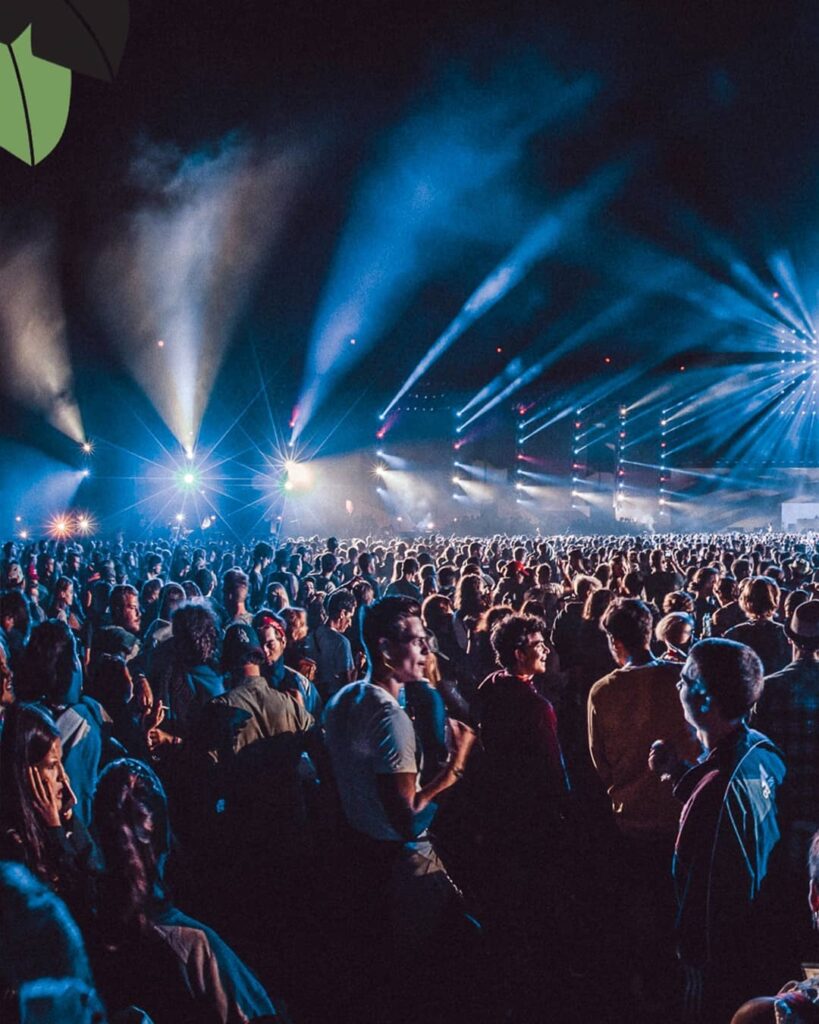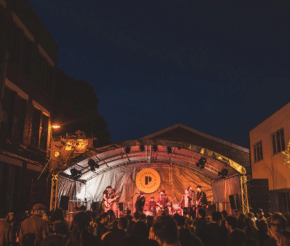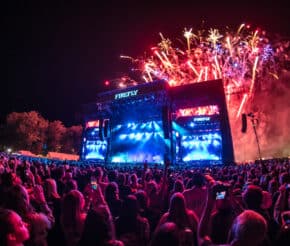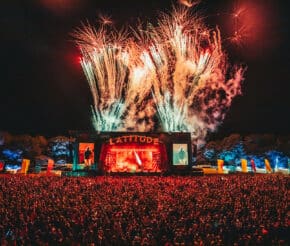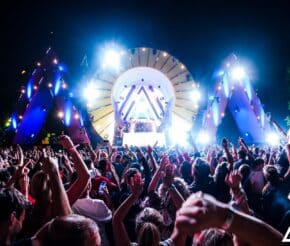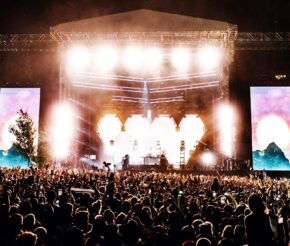- Advertise
-
Subscribe
All About Dour Festival
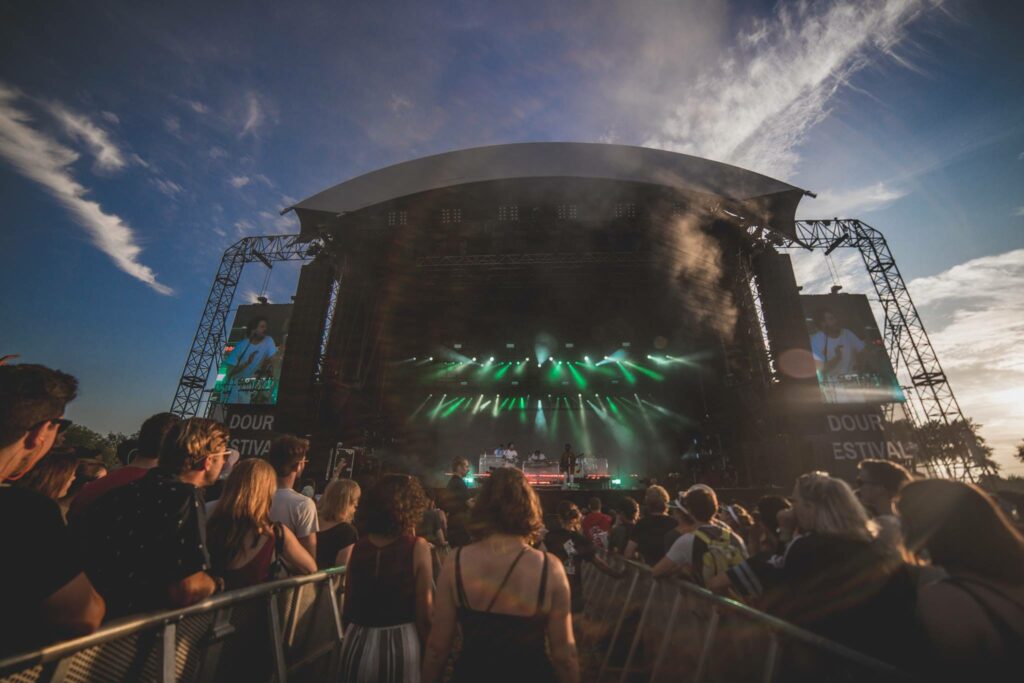
Dour, Belgium
Open-air
XXL – 50k+
Electronic, Rock, Pop
$$$$
International, Live music
+3 Days
Dour Festival is one of Europe’s largest events and living proof that focusing on a music niche isn’t always the magic formula.
The festival was launched in 1989 by entrepreneur Carlo di Antonio and morphed into a five-day music celebration held in the middle of July.
Returning stronger every year, the multi-day event takes over a huge outdoor field hosts several events in Dour, a municipality to the south-west of Brussels, western Belgium.
Dour is known to have one of the best party vibes, thanks to its variety of music acts including electronic, rock, pop, R&B, reggae, house, punk, hardcore, metal, hip-hop, indie, and techno.
Naturally, the diverse music mix draws an international crowd of party animals that come from all corners of the world.
Featuring a vibrant music repertoire and a bustling atmosphere every year, this festival earned the best medium-sized festival prize at the European Festival Awards.
Here’s everything you need to know about Dour festival.
The festival started as a small-scale event
The first Dour Festival was a one-day event that took place in 1989. With nothing but commitment, one stage and five bands, the music celebration started sharing its beat-fueled ethos with the public.
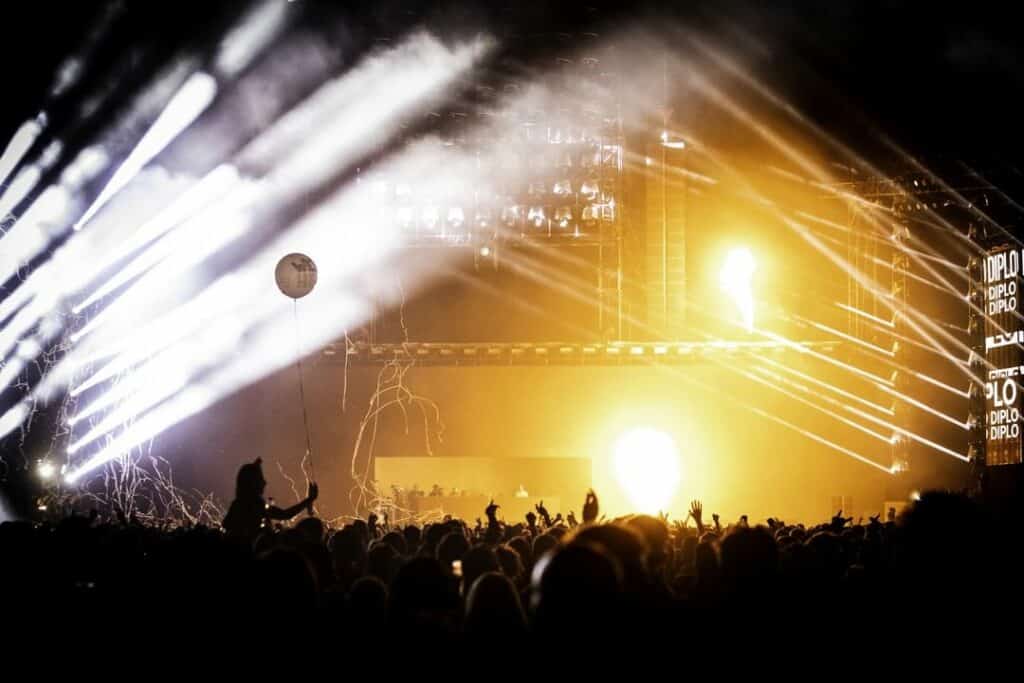
Two years later, Dour began its journey towards becoming a full-fledged festival. This time, the event was spread across two days and its lineup was taking shape as a diverse artist roster.
After three decades of hosting the event, Dour is now five days long and equipped with a superior lineup of prominent musicians taking over the stages.
Dour boasts a lofty mix of various music genres
With a “something for everyone” mantra, Dour Festival is a pro at bridging the gap between music genres.
Music heroes like electronic artist Boys Noize, American rapper Denzel Curry, Swedish singer Yung Lean and house DJ Caribou are just few of the names that rocked Dour’s stages.
Hosting local and international music artists, the festival presents the hottest multi-genre music sessions including electro, rock, R&B, reggae, house, pop, metal, hip-hop and indie.
Dour festival hosts many international music artists
In its inaugural year – and with just one stage, mind you – the festival hosted mainly French bands such as Phoenix and Aborted.
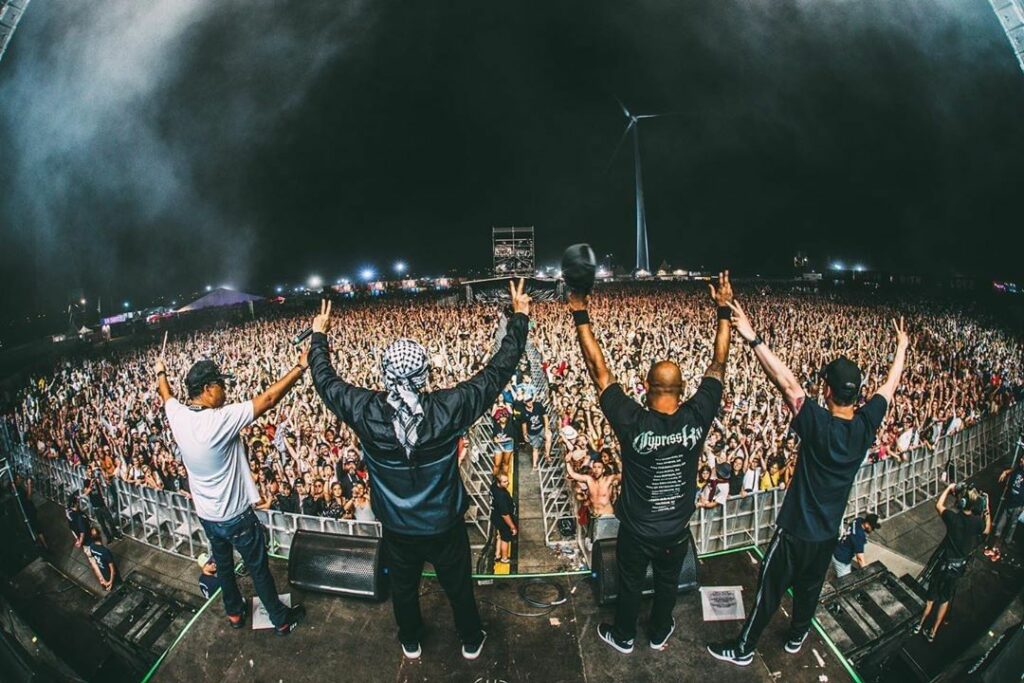
As Dour expanded over the years, it began to welcome music artists and bands from all over the world, drawing a larger audience and propelling the festival’s fame to new heights.
Cypress Hill, Project Pablo, and Jonwayne are some of the international artists and bands that performed at the festival.
The festival features several stages
When Dour started in 1989, it featured only one stage, where all the music artists used to perform.
The festival started to expand in 1993, when two additional stages were added, bringing the total number of stages to three.
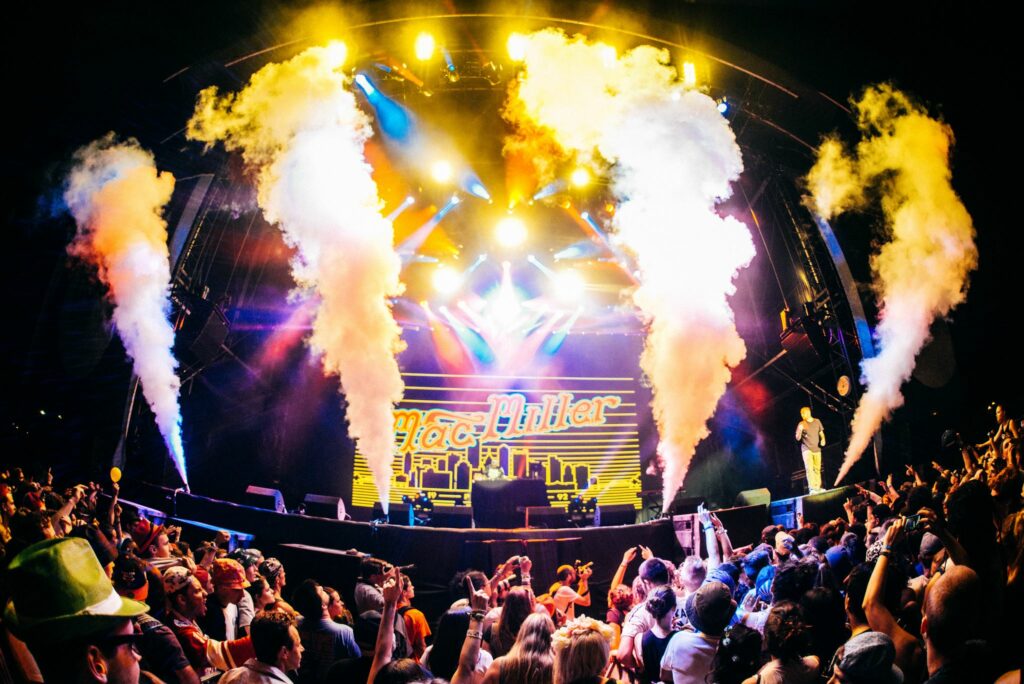
Nowadays, the event is the proud owner of eight separate stages, including The Last Arena, De Balzaal, Boombox, La Petite Maison Dans la Prairie, Dub Corner, Le Labo, and Rockamadour.
Each of these stages occupies a specific area, with its own distinct ambiance and music mix.
Dour attracts a diverse audience
With its popularity growing year after year, the festival attracts crowds from different European countries.
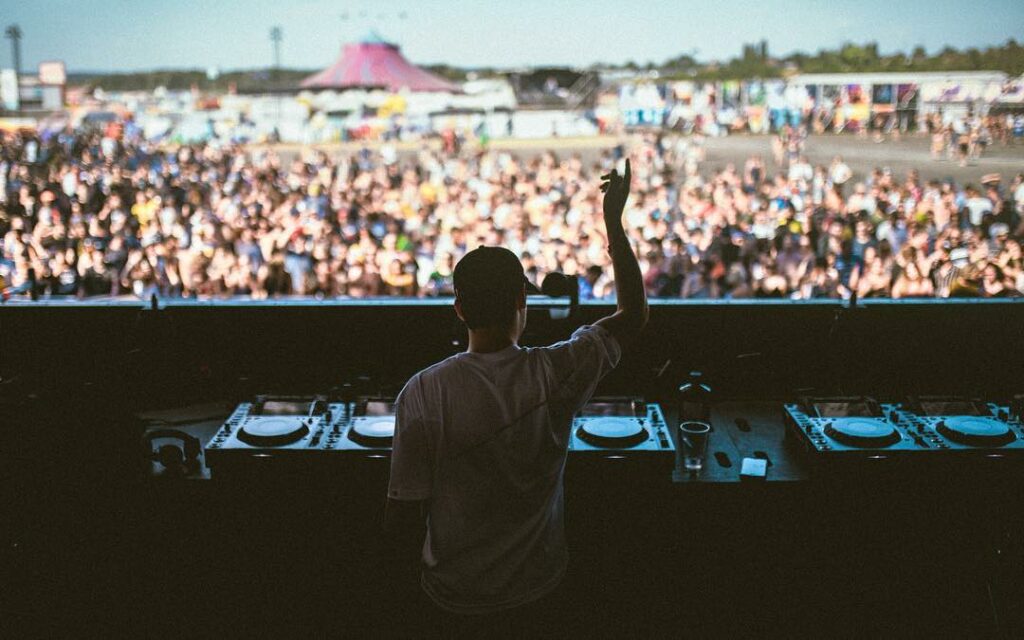
In 2009, while 40% of Dour’s attendees were locals coming from Wallonia and 32% from Flanders, the rest of the crowd traveled from other European countries. 16% came from France, 5% from the Netherlands, 5% from the United Kingdom, and 2% from the other places.
The festival has a large capacity
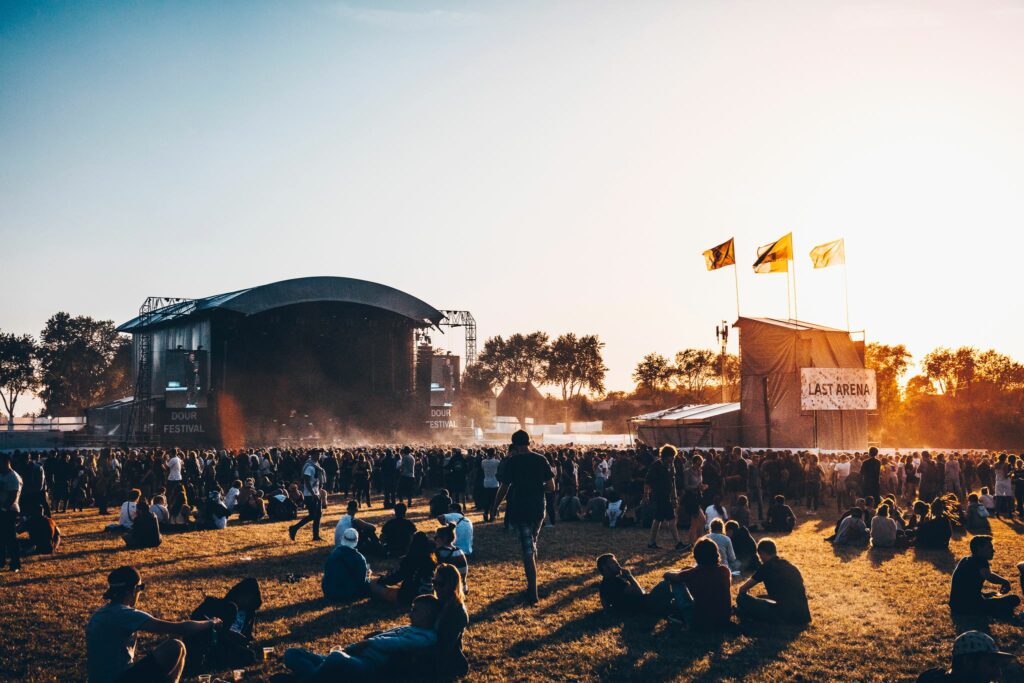
Throughout the years, Dour’s attendance was gradually increasing as a result of the festival’s ever-changing setting, lineup, and duration.
During the first event, there were 2,000 attendees. In 1993’s edition, with three stages and 32 bands, Dour attracted 9,000 spectators over two days.
The number of attendees kept increasing every year to reach 43,000 in 1995. In 2015, approximately 225,000 people attended the event in over five days. In its 2019 edition, it welcomed more than 251,000 people.
Dour provides several lodging facilities
A trip to Dour Festival is never complete until you spend at least one night at the festival’s campsite. Keeping this in mind, the festival’s management team provides a variety of lodging alternatives.
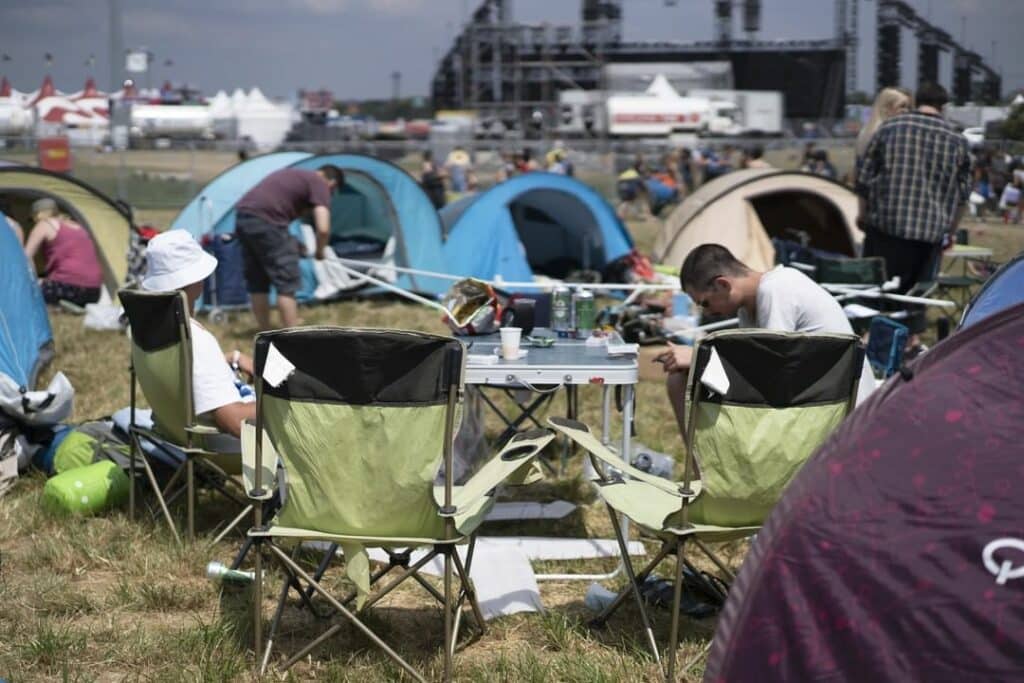
The accommodation options include the Regular Campsite, which is the main campsite. Comfort Camping is another option available to those who hold a Comfort Ticket.
This area features sanitary facilities, with flush toilets and free showers. Guests may also camp at the Green Camping area, nestled in a zone where Mother Nature reigns supreme.
The PRM Camping is also available for persons with reduced mobility, as they can benefit from unique amenities.
For those who prefer city accommodations, the festival has partnered with a few hotels to provide unique packages for two to four people.
The festival provides several ticket options
Those looking to join the multi-genre festival can choose from two ticket options.
The Regular Ticket gives the holder access to the Regular Camping, Parking D, and free shuttle service between St Ghislain station and the festival.
The Comfort Ticket guarantees festival-goers admission to both the Comfort Camping and the Regular Camping. It will also provide free shuttle service between St Ghislain station and the festival, free access to Parking A, as well as at the VIP area during its opening hours.
